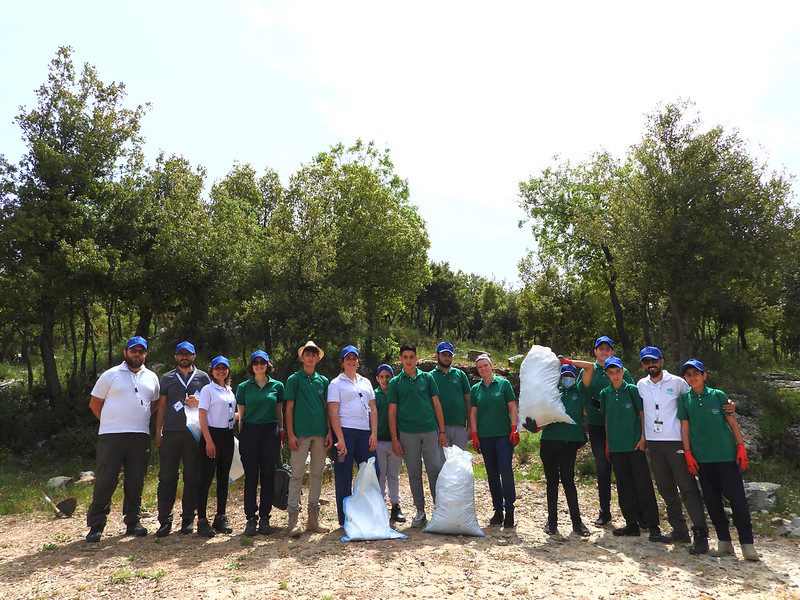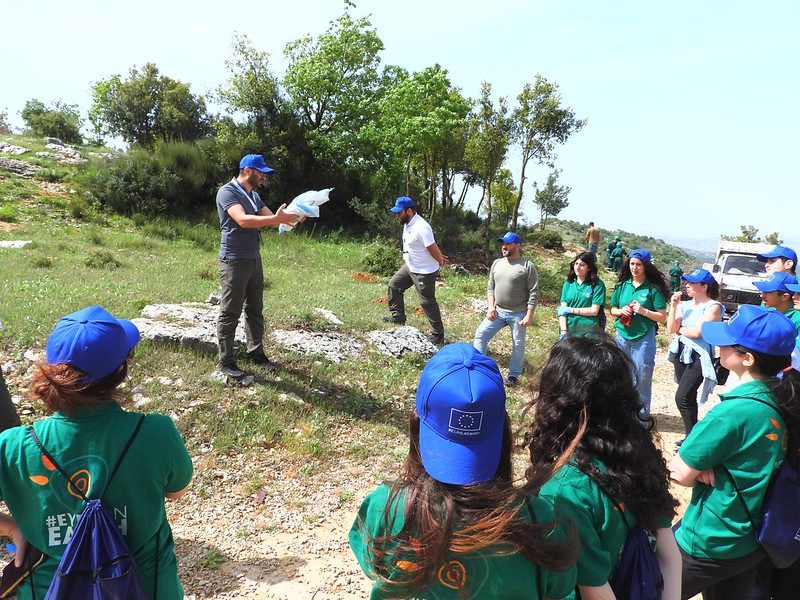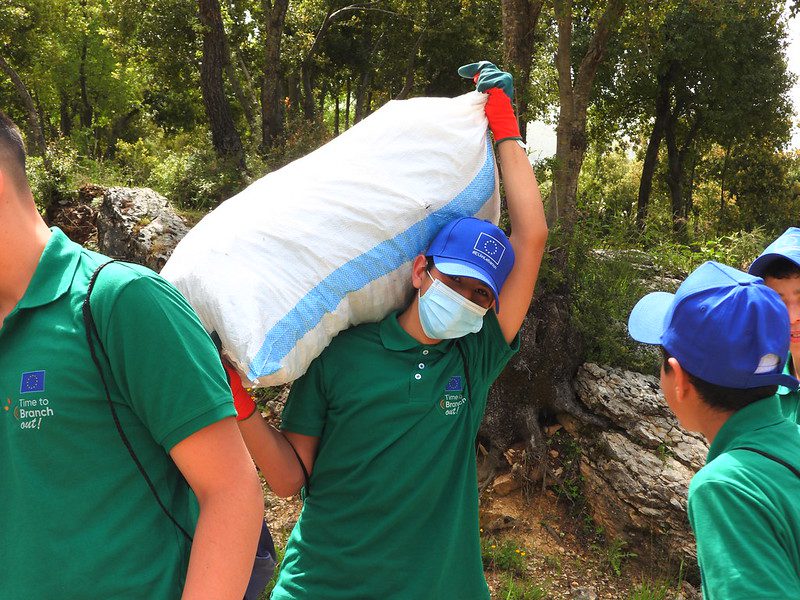Bioconnect: Protecting Forests And Supporting Local Communities
The preservation of forests is one of the main themes of the #EyesOnEarth campaign. And it was the forest that was the focus of this year’s Earth Day celebrations across the EU’s southern neighbourhood. Lebanon was no exception. To mark the day, the European Union team in Beirut travelled to the Shouf Biosphere Reserve to discover and clean the Dalboun Forest.
The day started early in the morning as the EU Delegation staff in Beirut gathered outside their office to travel by bus to the mountains where they met many delegates from EU Member States, including diplomats from the embassies of Romania, Bulgaria and Finland.
The atmosphere was sporty and relaxed and the clean-up ended with lunch under the trees.

EU-Led Efforts Fuse Conservation and Prosperity in the Shouf Biosphere Reserve
“Preserving the environment is one of the European Union’s priorities. It means preserving the earth’s resources in a sustainable way and ensuring an income for the inhabitants of protected areas. This is at the heart of our programmes in Lebanon and elsewhere. This is why we have chosen the Shouf Biosphere Reserve, where the European Union is supporting several projects, to celebrate Earth Day. Here we see an example of how protecting nature also generates income and enables the sustainability of projects. With projects like this, nature is happy, people are happy and we are happy”.
This was said by the Ambassador of the European Union to Lebanon, Sandra De Waele, during an event attended by the Delegation’s team in Lebanon, delegates from the Shouf Biosphere Reserve and thirty school children from the village of Barouk, which is located near the reserve.
On the agenda was the clean-up of the Dalboun Oak Forest, which is supported by the EU-funded BioConnect project. Children and adults were divided into two groups, taking turns to collect organic and non-organic waste, especially bullet casings from hunters, as the forest is authorised for hunting under Lebanese law, but only for residents of the area.
The collected wood was also shredded to make briquettes. The programme also included planting a tree to commemorate the day. The Dalboun Oak Forest is a buffer zone of the Shouf Biosphere Reserve, nestled between the various cedar forests and villages.
“It is the largest oak forest in the Shouf region and is home to two species of oaks, various conifers and many shrubs, all of which have been preserved. It is a protected forest that brings many benefits to the inhabitants of the neighbouring villages”, explains Nizar Hani, Director of the Shouf Bisphere Reserve.
“As part of our activities under the BioConnect project, our aim is to protect this forest, especially from fires. It is a pilot project that will hopefully set the rules for all oak forests in Lebanon. The country is famous for the Cedrus Libani, the cedars, but the oaks are numerically the most important trees in the country,” he explains.
Pruning is essential to protect the forests from fires. It also enables the production of wood and briquettes, which are sold at affordable prices, generating income for the project and ensuring its sustainability in a later phase. Organic waste is composted and converted into natural fertiliser, which is also sold at affordable prices.

BioConnect: Enhancing Conservation and Community Engagement
Jihad Jradi, Head of the Environment Programme at the Delegation of the European Union to Lebanon, explains: “The BioConnect project was launched with four non-governmental organisations in South Lebanon and Mount Lebanon, including the Shouf Biosphere Reserve. The project’s main objective is to ensure effective management and governance in ecologically important areas and to enhance biodiversity in Lebanon’s forests with the participation of local communities and in cooperation with the Ministry of Environment.”
The importance of BioConnect lies in the fact that it preserves the natural richness of protected areas while keeping the sites accessible to the local population and involving them in this preservation. This 45-month project is a joint effort of 4 Lebanese partners working together to improve the management and control of ecologically important areas. The project also aims to create new protected areas and other effective area-based conservation measures (OECMs) to conserve and connect a wider landscape.

Planting Roots: Youth Lead Efforts to Preserve Biodiversity
The main objectives are achieved by reducing the most important pressures on key biodiversity, enforcing legislation, effectively managing existing sites and designating new ones while supporting local communities.
The school students who participated in the event were born and are growing up around the Shouf Biosphere Reserve and they already know the importance of the forest.
For 15 year-old Oussama Boustani, who wears the traditional sarouel pants specific to inhabitants of the Lebanese Mountains, the most important activity of the day was the tree planting. “I know that when I grow up, the tree will still be here and I will remember that it was myself who planted it. In my village, my family shows me century-old trees that were there long before we were born,” he says. Nagham Ali, his friend of the same age, was very happy to take part in the day because “the forest is life”, she says.




























 Syria
Syria 


